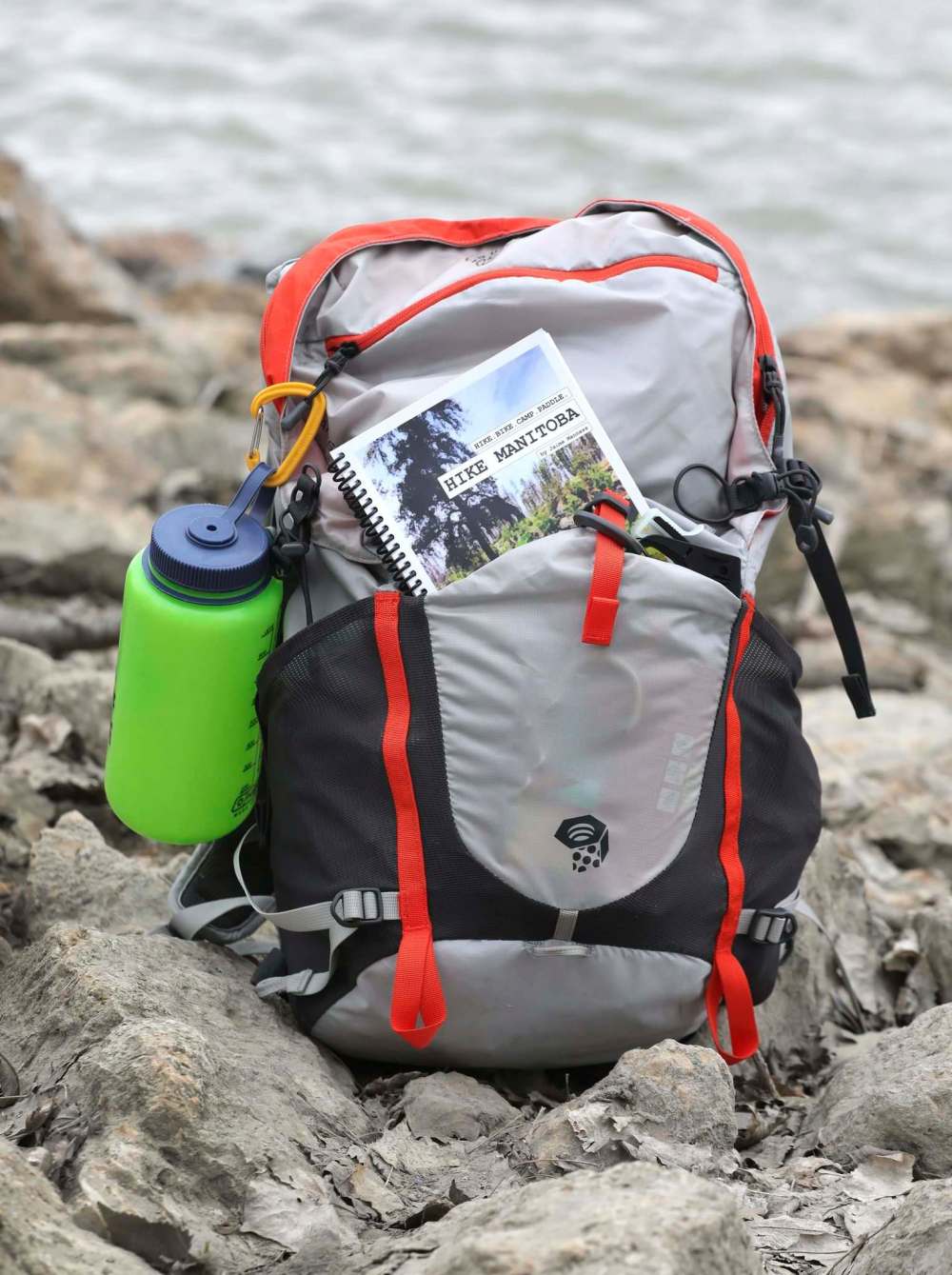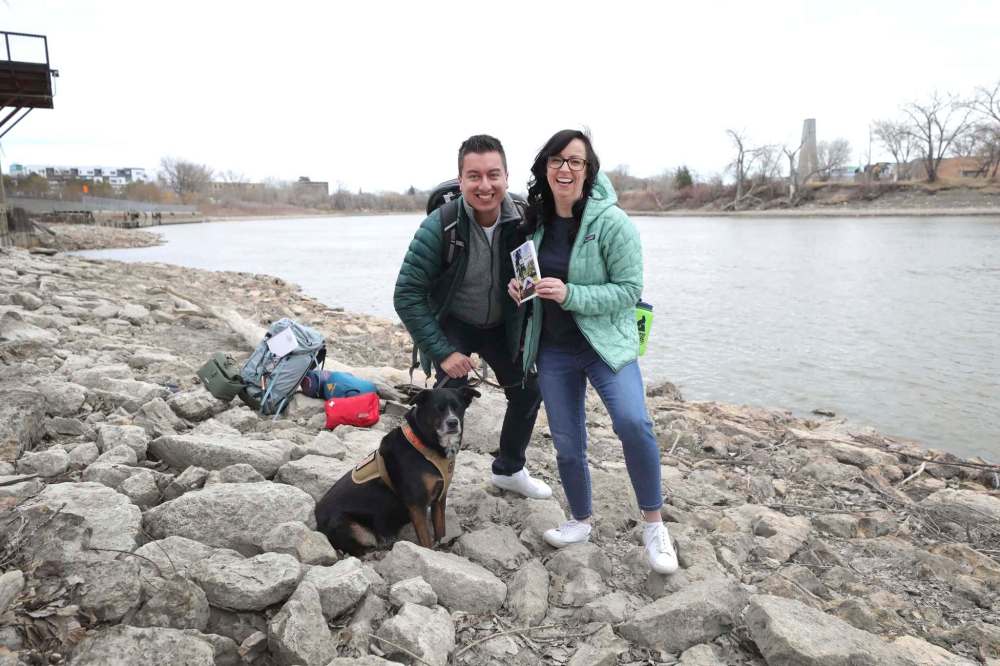Trail fix Jaime Manness founded Hike Manitoba as a resource for people to get out in nature while exploring the province
Read this article for free:
or
Already have an account? Log in here »
To continue reading, please subscribe:
Monthly Digital Subscription
$0 for the first 4 weeks*
- Enjoy unlimited reading on winnipegfreepress.com
- Read the E-Edition, our digital replica newspaper
- Access News Break, our award-winning app
- Play interactive puzzles
*No charge for 4 weeks then price increases to the regular rate of $19.00 plus GST every four weeks. Offer available to new and qualified returning subscribers only. Cancel any time.
Monthly Digital Subscription
$4.75/week*
- Enjoy unlimited reading on winnipegfreepress.com
- Read the E-Edition, our digital replica newspaper
- Access News Break, our award-winning app
- Play interactive puzzles
*Billed as $19 plus GST every four weeks. Cancel any time.
To continue reading, please subscribe:
Add Free Press access to your Brandon Sun subscription for only an additional
$1 for the first 4 weeks*
*Your next subscription payment will increase by $1.00 and you will be charged $16.99 plus GST for four weeks. After four weeks, your payment will increase to $23.99 plus GST every four weeks.
Read unlimited articles for free today:
or
Already have an account? Log in here »
Hey there, time traveller!
This article was published 04/05/2021 (1683 days ago), so information in it may no longer be current.
It’s Friday morning and Jaime Manness is busy lugging backpacks and gear down to the parking garage of her Exchange District condo. It’s a ritual performed most weekends and the final task before she can escape the city and head out into the reliable calm of the forest. On this particular weekend she’s travelling west to Riding Mountain National Park with her fiancé Ed Acuna and dog Jasper.
How to leave no trace
The following are overviews of the seven principles of outdoor ethics from Leave No Trace Canada (more information at leavenotrace.ca):
1. Plan ahead and prepare: Check the forecast and the rules and regulations of the area you’ll be visiting.
2. Travel and camp on durable surfaces: Stick to established trails and don’t alter the area around your campsite.
The following are overviews of the seven principles of outdoor ethics from Leave No Trace Canada (more information at leavenotrace.ca):
1. Plan ahead and prepare: Check the forecast and the rules and regulations of the area you’ll be visiting.
2. Travel and camp on durable surfaces: Stick to established trails and don’t alter the area around your campsite.
3. Dispose of waste properly: Pack out garbage and bury human waste properly, away from trails, water and campsites.
4. Leave what you find: Don’t touch cultural or historic artifacts, and leave plants and rocks where you find them.
5. Minimize campfire impacts: Fires outside designated pits cause lasting damage to the landscape. Use a camp stove for cooking and a lantern for light.
6. Respect wildlife: Observe animals from a distance, keep pets leashed and never feed wildlife.
7. Be considerate of others: Yield to other trail users and keep noise to a minimum.
Manness, 41, is a lifelong nature lover and the founder of Hike Manitoba, a series of trail guides and an online community designed to get people acquainted with the province’s many hiking routes. It’s a project she’d been mulling for years and — after much supportive prodding from Acuna — one she finally launched last spring at the height of Manitoba’s first wave.

“I could not have anticipated that I would launch a book in a pandemic when people were forced to stay home,” she says. “And now they suddenly needed something to do with their summer.”
With travel grounded, Hike Manitoba became a valuable resource for novice and experienced outdoors-people looking to explore their home province. So far, Manness has released three coil-bound, illustrated guide books — the first is a collection of 51 hikes, the second focuses on winter activities and the third, released in April, includes hiking, biking and paddling routes — and amassed more than 17,000 followers on Instagram.
“Everybody seems to be wanting to support new hikers and share information,” she says of her online following. “It’s a really supportive environment.”
As a kid, Manness spent every summer camping with her family. When she landed her first job out of nursing school in the emergency department at the Health Sciences Centre, her mental health suffered and she struggled to maintain a work-life balance.
“I was sleepless and anxious and I wanted to return to the thing that I remembered loving the most and that was time on the trails,” she says. “It gave me some clarity in my life… and it’s the one thing that I look forward to more than anything.”
She’s been hiking at least once a week for more than a decade and nature remains her happy place — especially during the public health crisis.
“The pandemic almost doesn’t exist in the woods,” she says.

However, evidence of the pandemic has started to creep into Manitoba’s wilderness in undesirable ways. Manness has noticed an uptick in the amount of garbage left in parks over the last year. If the recent crush of provincial campground bookings is any indication, even more people will be spending time outdoors during our second COVID-19 summer.
To get ahead of the curve and educate others, Manness has been sharing practical tips about leave-no-trace hiking on her Instagram page (@hikemanitoba) and in her newest book. The concept stems from backcountry camping and focuses on seven principles to limit the environmental impact of outdoor activity.
“The best way to start is to pack out what you pack in,” she says.
Heavy-duty Zip-loc bags are a hiker’s best friend. Manness uses one to organize her most important gear, although she is notorious for forgetting at least one item at home ( “It’s an ongoing joke,” she says with a laugh. “I definitely forgot my hiking boots the other day”) and another to store her garbage on the trail.
Trash includes everything from food containers and fruit peels to dog poop and toilet paper (the latter is a surprisingly common sight).
“Toilet paper does not go away when it rains, or whatever else people think happens to toilet paper,” says Manness, who disposes of garbage at home instead of leaving it to accumulate in park trash cans. “I hope to encourage and inspire people to think about these things before they leave the city.”
This summer, Manness and her faithful hiking partners will be revisiting some old favourites, such as Clearwater Lake in The Pas, and trying out a few new treks in Duck Mountain Provincial Park. It may seem contradictory, but she’s looking forward to seeing more people out on the trails enjoying nature.

“When people appreciate something and when they have a connection to it, they’re more likely to invest in it and care for it,” she says.
Visit hikemanitoba.co for more information and to order Manness’ trail guides.
eva.wasney@freepress.mb.ca
Twitter: @evawasney

Our newsroom depends on a growing audience of readers to power our journalism. If you are not a paid reader, please consider becoming a subscriber.
Our newsroom depends on its audience of readers to power our journalism. Thank you for your support.
History
Updated on Tuesday, May 4, 2021 7:14 PM CDT: Adds web headline
Updated on Wednesday, May 5, 2021 8:27 AM CDT: Adds link






